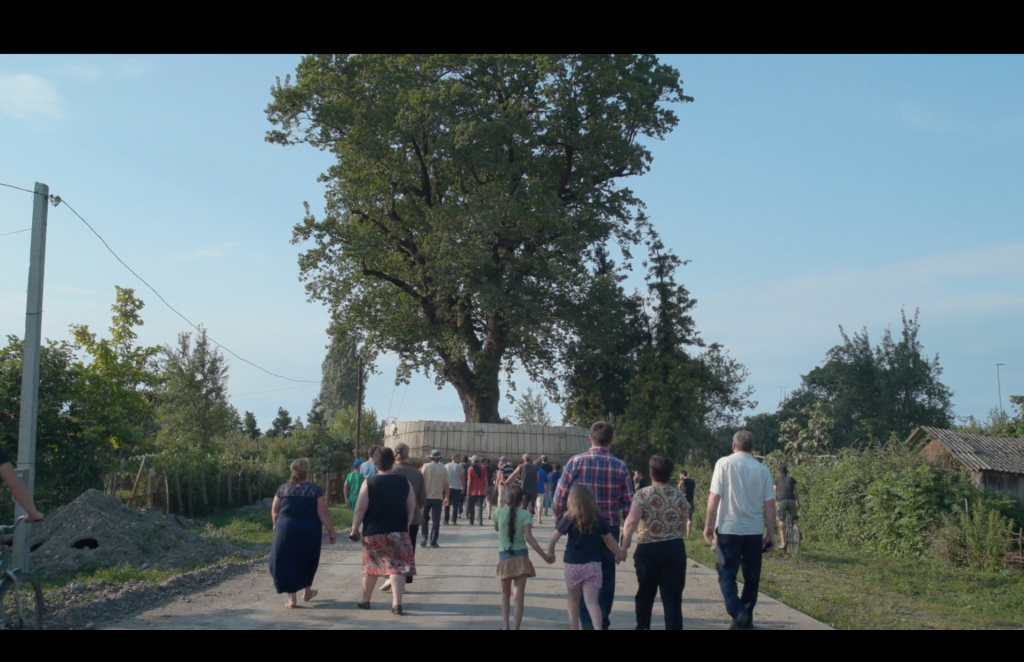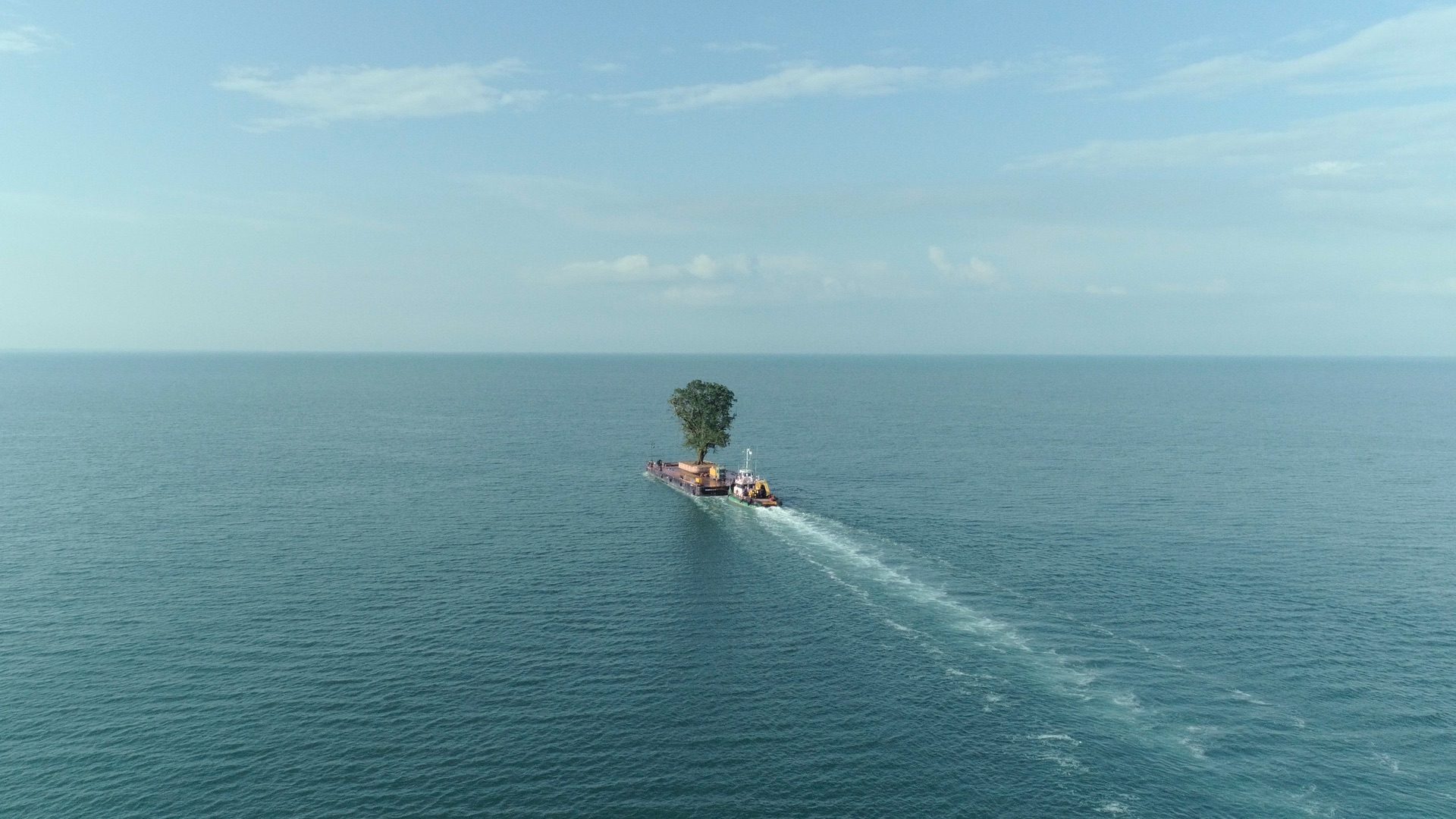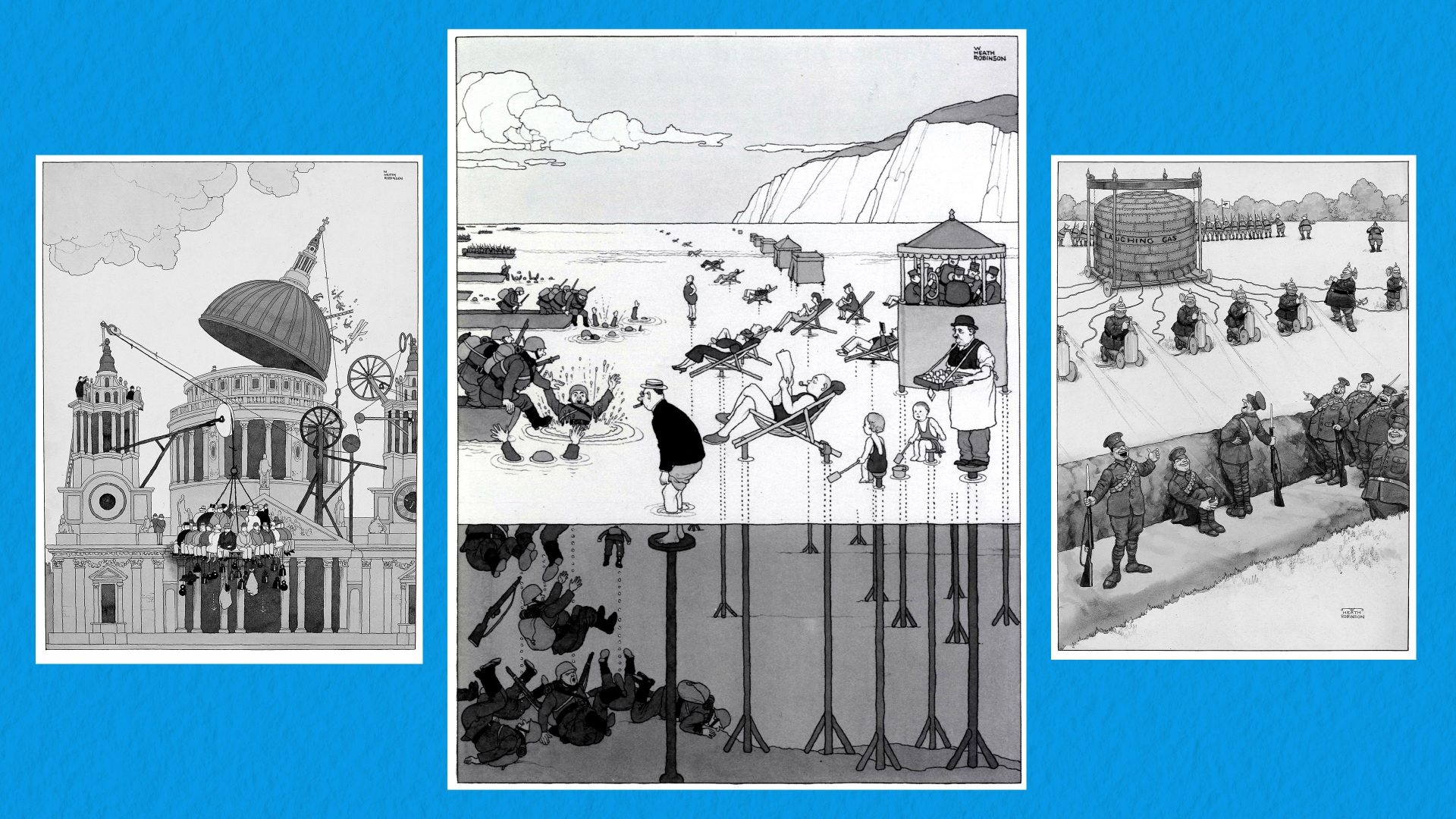A single, towering tree rises up from the waves of the Black Sea. It moves slowly against the horizon, its roots tied to a small ship. This dream-like image is the opening scene of a new film by Georgian director Salomé Jashi, Taming the Garden. The film details a unique and eccentric hobby of the Georgian billionaire, Bidzina Ivanishvili: he pays vast sums of money to uproot and move old trees from the countryside to a privately owned garden next to his estate on the Black Sea coast.
The film has won plaudits at the Sundance film festival and has been nominated for a European Film Award. Yet, despite the praise it has won from the international film community, it is not being shown in cinemas in
Georgia. Many believe its absence is due to its focus on the country’s richest
man. To see the film, one must go to a screening in the courtyard garden of a
restaurant, or in the basement of a bar.
The film has informally been banned from commercial cinemas. The cinemas released a statement saying they would not show the film due to
their “inexperience with releasing documentaries” – a strange claim in a
country with an internationally well-regarded film scene.
The newly elected president of the Georgian Film Academy, which owns the Georgian Cinema House, said all but one of the showings there would be cancelled because “we believe the film is politically motivated, which can
irritate people on political grounds. The Georgian Film Academy avoids any politically motivated events.” No matter that one of the sole purposes of art is to incite discussion: the film might anger the billionaire, so it cannot be shown.

If one watches Taming the Garden in the west, without prior knowledge of
Georgian politics, it raises the question of how one man has the power to
change nature. Yet Mr Ivanishvili’s role is not just that of a wealthy, extravagant individual. He was prime minister of Georgia from 2012 to 2013, as a member of the Georgian Dream party. His personal wealth is close to $5bn. Much of this wealth was made in Russia in the 1990s, which is why he is often referred to as an oligarch. He began his career by selling computers,
but eventually moved into banking and metals, amassing vast amounts of
money along the way.
Ivanishvili has mostly stayed out of formal politics since 2013, apart from a brief stint as the chairman of the GDP. Yet he is widely regarded to control the government from the shadows: the opposition claims that he can dismiss
ministers at will – even, supposedly, the prime minister himself. In a leaked
call with a Russian oligarch from April 2022, discussing business in the wake
of Russia’s invasion of Ukraine, Ivanishvili says of the prime minister “he is young and will take care of everything. I told him what to do”.
Under his rule, the foundations of Georgia’s already imperfect democracy
have become considerably weaker: the independence of the judiciary has
been eroded, former political rivals languish in jail and opposition media
outlets have been taken over. Perhaps so he might avoid allegations of state
capture, Ivanishvili purposefully stays out of the public eye – he is rarely seen in public at all. The only reminder of his omnipresence in Tbilisi is his
strange glass hilltop mansion, which looks down on the city below.
Although Mr Ivanishvili may be the subject of Taming the Garden, he is
almost entirely absent from the film. The film comprises beautiful shots of
the Georgian countryside and coastline, the immense process of uprooting and moving a tree, and comments from villagers affected by it. Yet his face is never shown in the film, and his name is only mentioned five times in an hour and a half. This was deliberate, according to the director: “He is a mysterious, godlike figure in the film. You never see him, but you know he is controlling everything.”
Jashi was criticised by a representative of Cartu Fund, which is owned by Ivanishvili, for not showing that the privately owned garden is open to members of the public. Yet the film was not supposed to be overtly political, according to Jashi. “This was not a piece of investigative journalism,” she contends. She says they discovered evidence that laws were broken by removal companies while some of the trees were moved, but chose not to
include this in the film.
The film also does not reflect the immense fear Jashi says she saw in the
eyes of many of the villagers they tried to speak to. “I have never experienced such fear of people being in front of a camera,” she says. Some were brave enough to speak openly: “He doesn’t give a shit about anything!”, one old woman cries, as she looks at a giant tree being dug out of the ground in the night, “he does whatever he wants! Whatever he pleases!”
Ivanishvili’s love of nature is full of contradictions: for all his desire to preserve and admire the oldest trees of Georgia, he is perfectly happy to destroy vast areas of land around them. Other trees are killed in the process. The impact of uprooting and moving the trees is particularly damaging to the local environment. “The real devastation is underground. When a tree is uprooted, that life support system literally gets ripped from the soil, leaving behind a barren wasteland,” according to Professor Toby Kiers of UV University Amsterdam. “It can take decades, sometimes longer, for underground ecosystems to recover from this type of damage.” She also dismissed the long-term viability of trees moved to an entirely new environment, saying it was like “Trying to reconstruct the Amazon jungle in a corn field.”
Jashi does not believe that Ivanishvili ordered the film to be removed from
cinemas, but that those underneath him did so as they believed it was what he would have wanted. Yet this speaks to an even higher level of institutional
capture: far from having to direct individuals to get his way, Ivansihvili can sit quietly as his underlings desperately try to ensure he is happy with the way the country is run.
Although Taming the Garden is but one film, its reception and subsequent ban reflect the issues that plague Georgian politics at large. The democratic decline in Georgia is attributed by many to the immense level of control exerted over the government by Ivanishvili. A country cannot grow and flourish into a democracy when all of its resources – be they the government, the judiciary, or its oldest trees – are at the beck and call of one man.
Taming the Garden is available to rent on Prime Video, Sky Store, Curzon and other major streaming services



